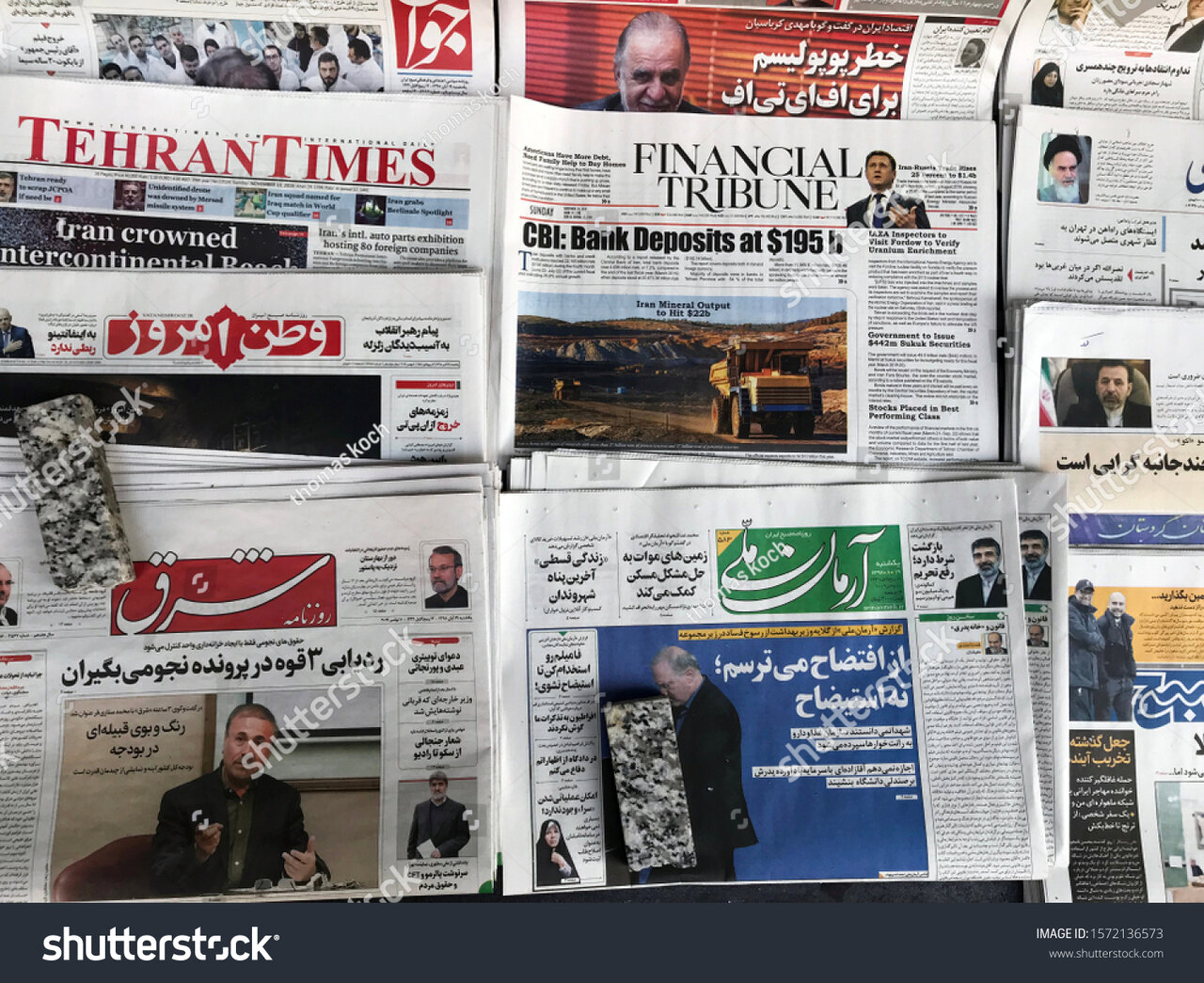Dimensions of Grossi's trip to Tehran

Although there are a lot of assumptions about Rafael Grossi's visit to Tehran, it seems that before his arrival in Iran, Massimo Aparo, the IAEA Deputy Director General and Head of the Department of Safeguards, reached an agreement with the officials in Tehran, otherwise chief of the Atomic Energy Organization of Iran did not invite Grossi to Tehran, Arman-e-Melli wrote.
That’s because Iran had previously announced that Grossi's visit to Tehran should have results.
Now that he has been invited to Tehran, it is likely that the agreement has been finalized.
Now that Grossi has traveled to Tehran, if an agreement is made and officially announced, it can be considered a big step forward in the relations between Tehran and the IAEA.
With a new deal, Iran must answer the agency's questions about three sites, and the body declares that Iran's responses were convincing.
It seems that if such a matter is realized, the grounds for Iran and dialogue partners will be provided because one of the main obstacles to reviving the 2015 nuclear agreement last year was the IAEA's questions.
Javan: Washington is told to agree with Iranians before it is too late
Javan newspaper writes: As the IAEA's ever-fussy director general has traveled to Tehran, there are whispers of disagreement between the U.S. and Europe over the type of response to Tehran.
The Wall Street Journal reported on Thursday about a dispute between the U.S. and its European allies about a reaction to the alleged production of 84 % uranium in Iran.
The WSJ cited several Western diplomats as saying Britain, France, and Germany seek a resolution against Tehran during the looming meeting of the IAEA's Board of Governors, but Biden's government does not agree.
With the unrest fading in Iran, it seems that the White House is trying to keep the doors of the negotiations open. But Europeans are trying to increase pressure against Iran at the IAEA board.
Some Western officials and observers believe that intensifying the pressure and blocking the negotiations will lead Iran to develop its nuclear program and told Washington to agree with the Iranians as soon as possible.
Sobhe No: Washington waits for end of Grossi visit to Tehran
Referring to visit by IAEA Director General Rafael Grossi to Tehran, Sobhe No writes: Some say Iran should continue to cooperate with the agency (IAEA) to close its case. Others emphasize Iran's withdrawal from the Non-Proliferation Treaty aka NPT.
Those who push for Iran's withdrawal from the NPT say that the Zionist regime is not a signatory to the NPT and no country has protested it. They argue getting out of the treaty will raise the West's concern over Iran's nuclear industry and will eventually redefine the balance of power between Iran and the West.
But Grossi's trip to Iran is important because after returning to Vienna, he will present a report on the 84% enrichment claims.
In this regard, a senior U.S. official told Al -Arabiya that we know that Rafael Grossi is expected to meet high-ranking officials in Tehran, so Washington will wait until the end of the meetings.
Quds: Tehran and Moscow in search of a new world order
In an interview with the Quds newspaper, Omid Babelian, a political expert, says: Considering the change in the balance in the world, Iran, China, and Russia are looking for a multipolar world, and Tehran is trying to find its own place in the new and multipolar order.
Referring to the upcoming visit of Iran's chief diplomat to Moscow as a part of Iran's independent foreign policy approach towards friendly and neighboring countries as well as international relations, Babelian says: Iran seeks to establish ‘balance’ in its diplomacy.
Pushing for nuclear negotiations and visits by senior Iranian officials to China and Russia fall within this policy. Reinforcing relations with India is also a sign of Iran's balanced foreign policy.
"This is why Iran and Russia, in line with the new balance of power, support a multipolar world outside unipolar and bipolar stereotypes," he added.
Kayhan: Arab diplomats are in queue to go to Damascus instead of Tel Aviv, why?
Kayhan writes: Iran is the “heart and head” of West Asia. It is a big mistake if we underestimate the power and position of the Islamic Republic.
An example, in this case, is Iran's influence on Syria's developments.
As we know, during the past month, many diplomats from Arab countries have gone to Damascus. They are trying to rebuild their political and diplomatic relations with Syria!
Which Syria?
The country where Arab countries spent billions of dollars to overthrow its government, accusing it of being an ally of Iran.
The coalition between the two countries, the Islamic Republic and the Syrian Arab Republic, still remains, and there has not been a minor change in it, but the Arab countries that are enemies of Syria have lined up to re-establish relations with it. There is a lot to say about this.
